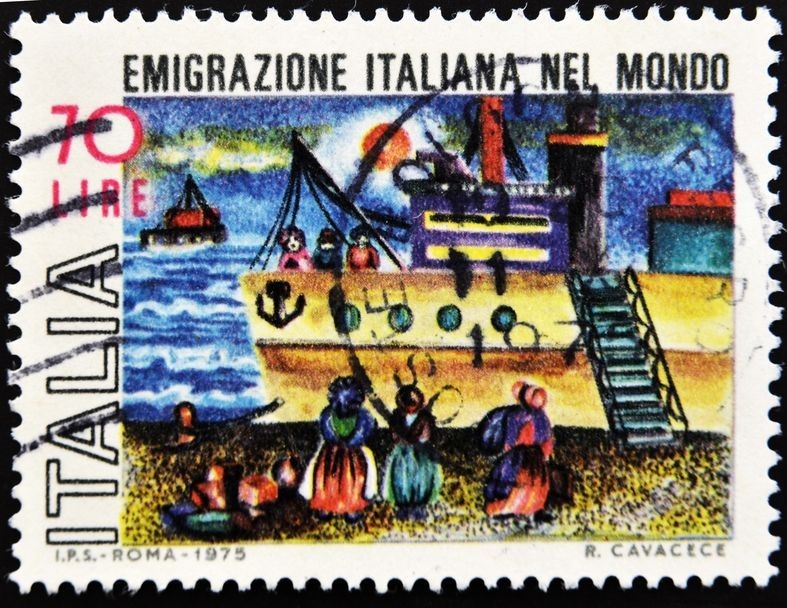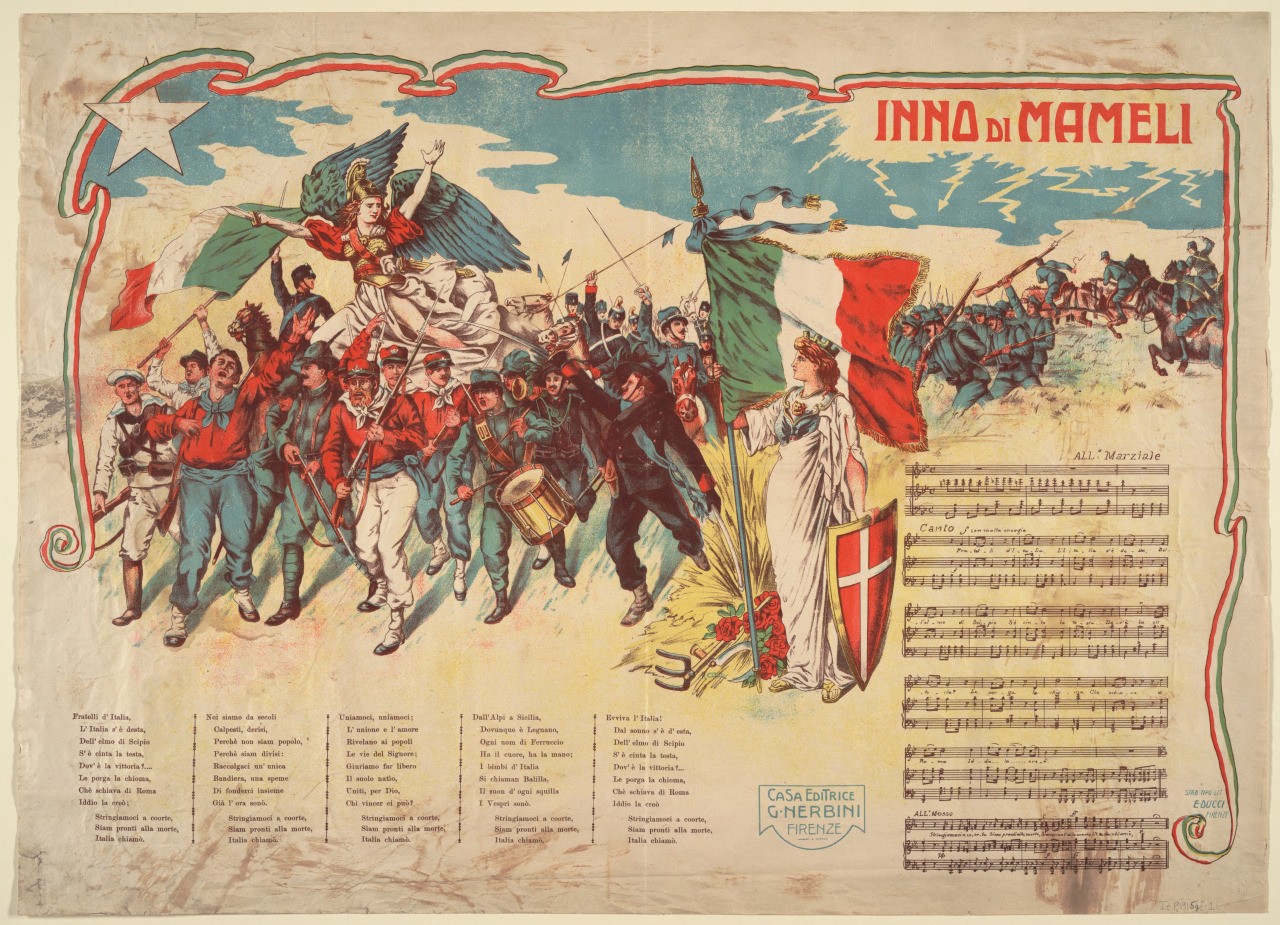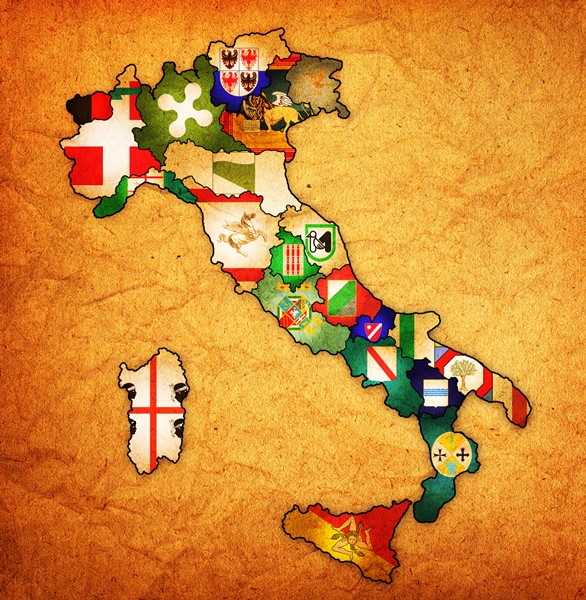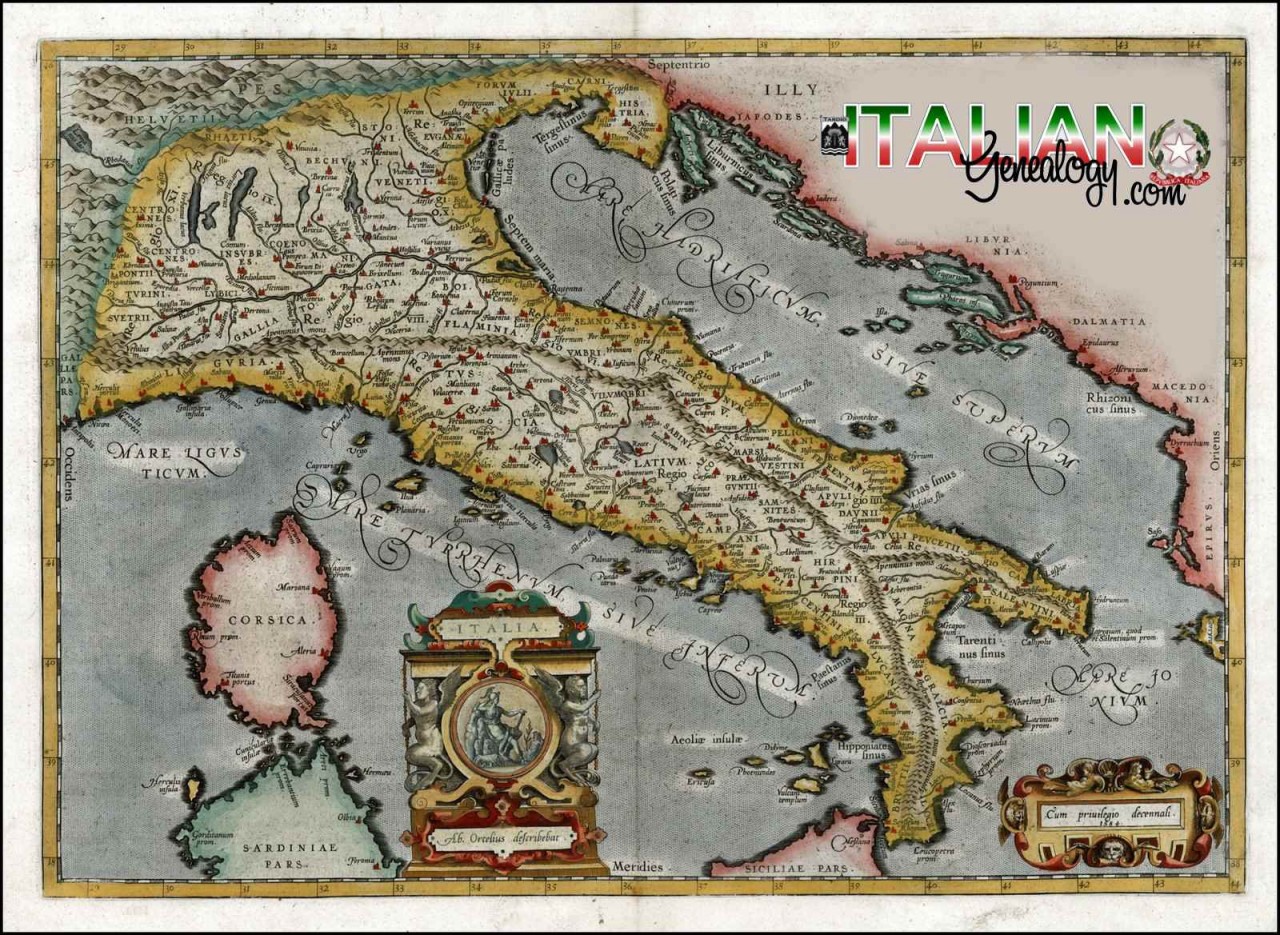The greatest exodus of modern history has been that of the Italians. Since 1861, more than twenty-four million departures have been recorded. In the space of just over a century a number almost equivalent to the amount of the population at the time of the unification of Italy emigrated abroad. It was an exodus that affected all the Italian regions....
From 12th October 1946, the national anthem of Italy has been the "Canto degli Italiani" (Chant of the Italians), written in the Autumn of 1847 by a Genoese student and patriot Goffredo Mameli, and set to music in Turin by another Genoese, Michele Novaro. Born during an atmosphere of patriotic fervor that preluded the war against Austria, the hymn ...
During the mass emigration from Italy during the century between 1876 to 1976, the U.S. was the largest single recipient of Italian immigrants in the world. However, their impact was not as great as countries like Argentina and Brazil. That was due to the fact that hundreds of thousands of immigrants from nations all over the world were migrating t...
The name Italia, probably a Graecized form of Italic Vitelia (='calf land'), was originally restricted to the southern half of the 'toe' but was gradually extended. By 450 B.C. It meant the region subsequently inhabited by the Bruttii; by 400 it embraced Lucania as well. Campania was included after 325, and by Phyrhus' day Italia as a geographical ...
As a nation state, Italy has emerged only in 1871. Until then the country was politically divided into a large number of independant cities, provinces and islands. The currently available evidences point out to a dominant Etruscan, Greek and Roman cultural influence on today's Italians. The earliest human settlements within the territory of presen...







